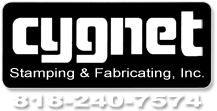| 302, 304, AND 304L “18-8” Cr-Ni STAINLESS SHEET
Type 302 is the basic “18-8” chromium-nickel stainless steel. It combines excellent mechanical properties with remarkable resistance to many corrosion agents encountered in domestic and industrial use. It is non-magnetic in the annealed condition and not hardenable by heat treatment. Both hardness and tensile strength can be increased by cold working. This is an electric-furnace product manufactured to meet the exacting standards of the aircraft industry.The analysis of Type 304 is similar to that of Type 302, except that Type 304 is modified by lowered carbon content. This provides good resistance to corrosion in welded construction where subsequent heat treatment is not practicable. American Specifications: ASTM A167, ASTM A240, AMS 5513, MIL-S-5059 British Specifications: 302 – 301 S 26, 302 S 26; 304/304L – 304 C 12 (LT 196), 304 S 3, 304 S 11, 304 S 15, 304 S 16, 304 S 17, 305 S 11, S. 536, T. 74, LW 20, LWCF 20, LW 21, LWCF 21 Applications: Used where corrosion resistance and good mechanical properties are primary requirements. These grades are widely accepted in such industries as dairy, beverage, and other food products where the highest degree of sanitation and cleanliness is of prime importance. Parts for handling acetic, nitric, and citric acids; organic and inorganic chemicals; dye stuffs; and crude and refined oils are fabricated from this material. Because of its lack of magnetism it is highly desirable for instruments. It is also widely used for architectural trim. Type 302 sheets are used in aircraft applications where corrosion resistance is required, but where gas or arc welding and elevated temperatures are not involved. Type 304, as noted above, finds particular use in applications requiring welding. Size Range: .016″ [28 ga] – .135″ [10 ga] (4 mm – 3 mm)
Weldability: Easily welded by all the commercial processes except forge or hammer welding. The resulting weld has good toughness and ductility. Annealing is recommended after welding to maintain maximum corrosion resistance. Forging: Forge between 2100° F and 2350° F. Do not forge below 1700° F. Corrosion Resistance: Types 302 and 304 show good resistance to corrosion. They are highly resistant to strong oxidizing acids, such as nitric acid, and resist attack by a wide variety of organic and inorganic chemicals. Maximum corrosion resistance is obtained in the annealed condition. Intergranular corrosion may occur when material is heated within or cooled through the range of 800° F – 1500° F. Annealing: Annealing range is between 1850° F and 2050° F. Cool rapidly. Water should be used for heavier sections; air for lighter sections. The stress-relieving range is between 400° F and 750° F. Size & Weight Table:
|
|||||||||||||||||||||||||||||||||||||||||||||||||||||||||||||||||||||||||||||||||||||||||||||||||||||
